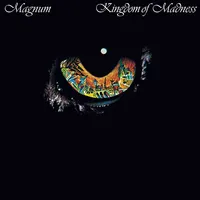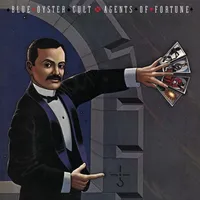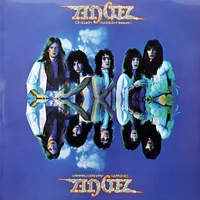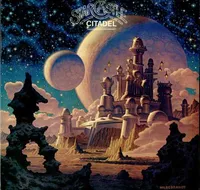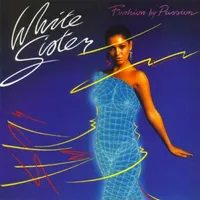10 pomp rock albums you should definitely own
Pomp Rock was the unruly child disowned by prog and orphaned by AOR. Its melodies were a hit at radio and filled arenas across America, and here's 10 albums to get you started
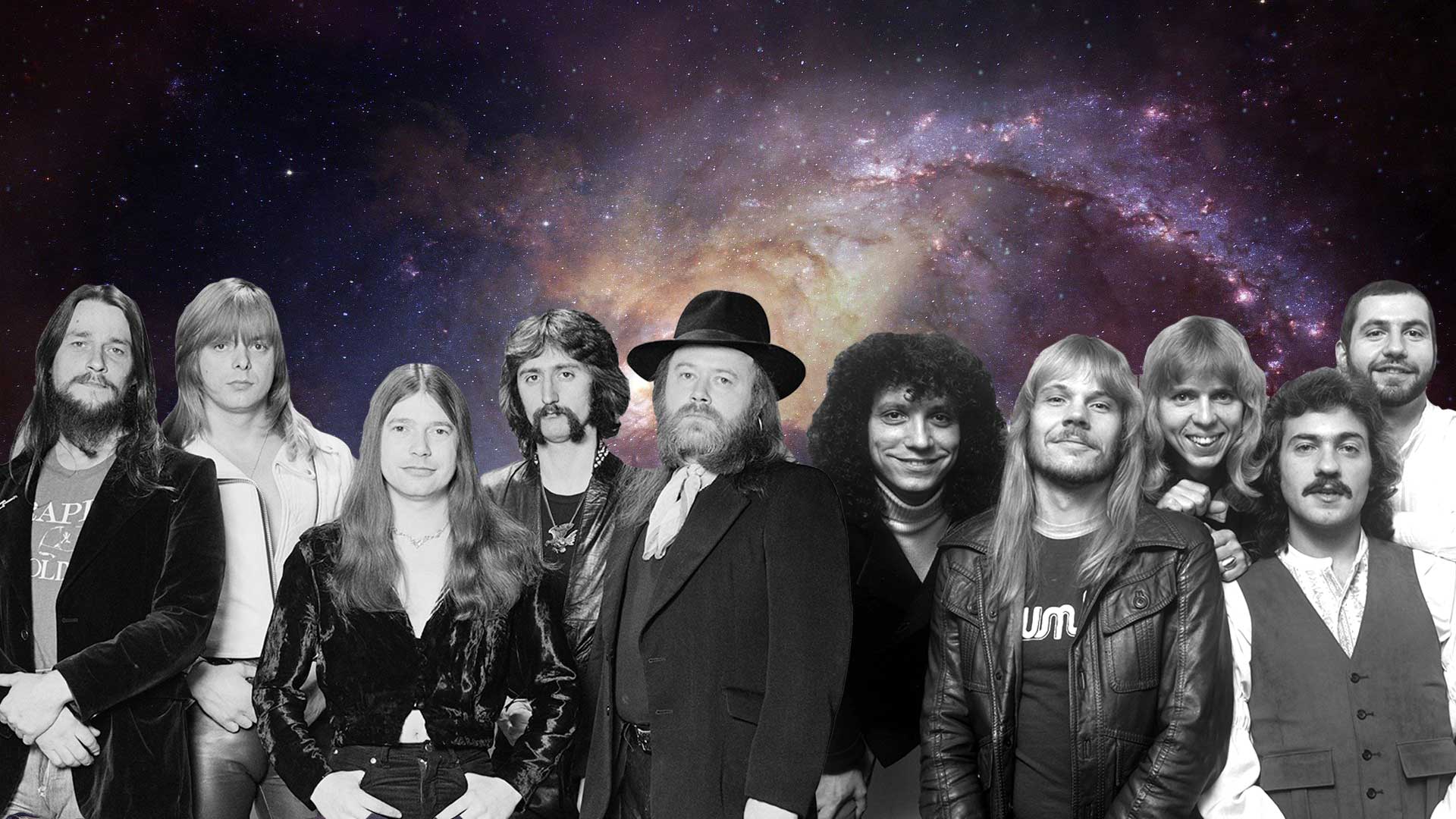
Select the newsletters you’d like to receive. Then, add your email to sign up.
You are now subscribed
Your newsletter sign-up was successful
Want to add more newsletters?
It was Classic Rock’s Geoff Barton who, in Sounds magazine years ago, first exclaimed the now famed line: ‘Pomp rock lives! Head for the hills!’ Which just about put that whole genre into perspective. Pomp was the child disowned by prog, and orphaned by AOR; the beast locked in the cellar, who got loose to terrorise the neighbourhood. Except that in the case of pomp rock we’re talking about a global neighbourhood, albeit one based principally in North America.
So what actually happened? Simple, really. American youth listened to the likes of Yes, Genesis, ELO and Queen, scratched their stubbly chins and thought: ‘Hmmm… We can make something of this. But it has to be radio-friendly, and it also has to have serious musical values. The result was that the a new crop of bands adopted the progressive tendencies of Britain’s finest bands of the early 1970s, and gave them a melodic sheen, and headed out to do battle. And it worked.
In Britain, though, pomp rock remained in the shadows, seen by many as hysterically self-important and nonsense. It was a cult thing, spread as much by careful whispers as through media attention. Consequently, record sales by these artists never really came even close to matching what was happening in the US – a situation not helped by the fact that they rarely ventured outside their own country. We did have some bands who emulated the US pompadours – Magnum, White Spirit and Saracen come to mind – but of these only Magnum achieved any real status, and that was only after changing to a more streamlined approach.
By the early 1980s, pomp had blown itself out. While the biggest names (such as Styx and Kansas) carried on regardless, the genre in general suffered a seizure. Since, bands like The Darkness having picked up the baton, appreciating the unwitting humour as much as anything. Pomp rock lives (again)! But don’t run away.

Styx - The Grand Illusion (A&M, 1977)
Chicago’s Styx may have started out as a poor copy of Yes, but by the time this monster appeared they were the grand masters of pomp. It’s the epitome of the genre: bristling with melody, good musicianship and just the right touch of arrogance.
The confidence in the songs is almost overwhelming, as the title track and Fooling Yourself (The Angry Young Man)’s swagger and dash. And it’s difficult to ignore Come Sail Away, a song brought back into focus by constant repetition on South Park. While the band’s other albums are almost as flawless, this is the record that really marked out Styx’s territory.
Kansas - Leftoverture (Epic, 1976)
Well, Leftoverture features arguably the ultimate pomp rock anthem, Carry On Wayward Son, so the album has to be close to the top of any list. It’s got violins and violas, plus a song called Magnum Opus. The ebb and flow of this wonderful and charismatic album is very much of its time, yet it’s also a benchmark for any band wanting to take an intelligent approach to melodic hard rock.
Kansas managed to even make pretentiousness seem cool, as they breezed through songs that you could happily hum in the shower. 40 years on, perhaps it’s time for an orchestral version of this lush work?
Magnum - Kingdom Of Madness (Jet Records, 1978)
Brummies Magnum were getting used to being in the charts by the mid-80s, but in their early days they were cast in the mould of the American pomp crew. However, there was something altogether English – not to mention slightly eccentric – about this, their debut record, not the least because the quintet looked rather like blind roadies let loose in Slade’s wardrobe.
Musically there are some astounding moments, the prime examples being the title track (which is still an essential part of the band’s live set), Invasion and All That is Real. Imagine Jethro Tull adapting Blue Oyster Cult, and you get close to the heart.
Blue Oyster Cult - Agents Of Fortune (Columbia, 1976)
Some people think of BOC as an American version of Black Sabbath, but much of their early material fits neatly into the drawer labelled ‘Pomp’; Agents Of Fortune is the apogee of this period in the band’s long history.
Understandably, everyone gravitates towards (Don’t Fear) The Reaper (a hit single about embracing death) but there’s also Tattoo Vampire, E.T.I. (Extra Terrestrial Intelligence), and Debbie Denise (co-written with Patti Smith). However you slice up pomp, this album fits in. It’s over-amped, smooth and memorably melodic, while also being slightly sinister.
Angel - On Earth As It Is In Heaven (Casablanca, 1977)
As most of the world immersed itself in an ocean of spit, the whiter-than-white Angel delivered a flamboyant exercise in opulence and grandeur. Perceived as the heavenly knights to Kiss’s satanic darkness, Angel were famed for their remarkable stage show, including some outlandish sleights of hand, but never quite transferred this into the studio.
But, this is arguably the closest they got to emulating the pomp and circumstance of their live performance. How can you ignore an album with a song called White Lightning featuring the preposterous line: ‘White lightning, it’s frightening’?
Starcastle - Citadel (A&M, 1977)
Majorly influenced by Yes, especially in the vocals and lyrics, the St. Louis band found their range with this, their third album. It has a symphonic, almost naive enthusiasm that overcomes doubts about the band’s sweeping, grandiose, ridiculously cod-classical leanings.
Herb Schildt’s keyboard playing sounds almost comical now, but the band’s earnest efforts to turn songs like Wings Of White and Shine On Brightly into heavyweight excursions makes Starcastle loveable. Citadel is an album that can still charm and beguile. A product of its time that has become a significant album for the cause.
Zon - Back Down To Earth (Epic, 1979)
From Canada comes an album that suggests pomp flavours as soon as you see the front cover – all silks, carefully coiffured trousers, and perms that make The Hair Bear Bunch seem like skinheads. The music, though, is crucial, stacking fetching guitar riffs against stately keyboards. It’s orchestral, plush, polished and manicured to an almost obsessive degree.
You want songs that can stand up against prog? Try Gods And Kings or When He’s Old. Unfortunately the album wasn’t Zon’s ticket to the top, and they soon toned down the excess. But the over-ambitious quality here is what made this band so endearing.
Yes - Going For The One (Atlantic, 1977)
Here’s an example of how one of the premier British influences on pomp rock were themselves suddenly trying to emulate their American devotees. Going For The One was the bridge between old-school Yes and the version of the band that emerged with 90125.
Faltering occasionally, Yes here displayed a nimble touch on songs like Wondrous Stories and Going For The One, with a keen awareness of the way prog had been successfully adapted and commercialised by the likes of Styx. The album is a Yes oddity, but they deserve credit for realising how music was progressing, and taking the first steps towards adapting to a new era.
Storm sounded like someone had locked away singer Jeanette Chase and guitarist Lear Stevens with the first five Queen albums. Overactive, overloaded and over there, the Los Angeles four-piece didn’t hold back on this first of two self-titled records.
Everything is daft; the vocal harmonies are multi-tracked to exhaustion; the guitar sound is cranked through the ceiling; the songs dash from the two cent opera of I Want You to the balladic You Pity Me, almost making AOR kings Journey sound like buskers. Add the fact that Jeanette Chase looked delicious in white satin and they couldn’t fail. Surprisingly, they did.
White Sister - Fashion By Passion (FM Revolver, 1986)
A case of right album, wrong time. Five years after pomp reached its zenith, American band White Sister arrived with a record that would have made them superstars in the late 1970s. With multi-layered guitar harmonies, sumptuous keyboards, and the sort of melodies that are both regal and insistent, Fashion By Passion had it in spades.
Arriving at a time when such values were being derided, however, the record stiffed badly, and left White Sister an obscurity instead of in millions of record collections. Ironically, it now all makes sense, with Save Me Tonight and a cover of The Beatles’ Ticket To Ride worthy of even Styx.
Sign up below to get the latest from Classic Rock, plus exclusive special offers, direct to your inbox!
Malcolm Dome had an illustrious and celebrated career which stretched back to working for Record Mirror magazine in the late 70s and Metal Fury in the early 80s before joining Kerrang! at its launch in 1981. His first book, Encyclopedia Metallica, published in 1981, may have been the inspiration for the name of a certain band formed that same year. Dome is also credited with inventing the term "thrash metal" while writing about the Anthrax song Metal Thrashing Mad in 1984. With the launch of Classic Rock magazine in 1998 he became involved with that title, sister magazine Metal Hammer, and was a contributor to Prog magazine since its inception in 2009. He died in 2021.


